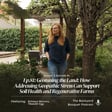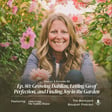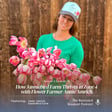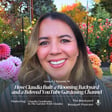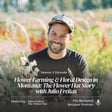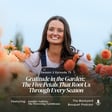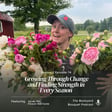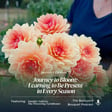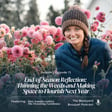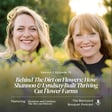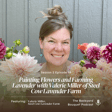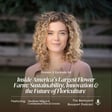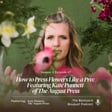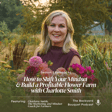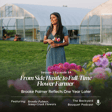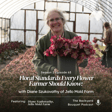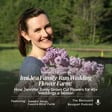
Ep. 53: Growing a Cut Flower Business & Preserving Heirloom Mums with Jessica Hall of Harmony Harvest
In this episode of The Backyard Bouquet Podcast, Jennifer sits down with Jessica Hall, co-founder of Harmony Harvest Farm in Virginia’s Shenandoah Valley. What began as a simple question during a family beach vacation—“Where do florists get flowers?”—sparked the beginning of a 20-acre flower farm that now ships bouquets and heirloom chrysanthemum plants across the country.
Jessica shares how she, her sister, and their mom grew their passion into a thriving business rooted in sustainability, technology, and a whole lot of heart. From saving the last U.S.-based flower frog manufacturer to building a farm that blends heritage blooms with modern tools, this is a conversation full of wisdom and inspiration.
Whether you’re just getting started in the garden, knee-deep in flower farming, or dreaming of building something special with your family, Jessica’s story is packed with real-life lessons, encouragement, and the kind of flower talk that makes you want to dig in and grow.
🌸 Highlights from the episode:
- How a family conversation led to launching Harmony Harvest Farm
- The power of mentorship and why it’s worth investing in
- What makes heirloom chrysanthemums so special—and how to grow them
- Behind the scenes of their flower frog business, Floral Genius
- Using tech tools to manage a high-volume flower operation
🛒 Shop flowers, chrysanthemums, and flower frogs: hhfshop.com
📸 Follow along: https://www.instagram.com/harmonyhrvst/
📌 Please Subscribe to The Backyard Bouquet Podcast for more flower farming insights!
🌼 Join The Dahlia Patch Waitlist
Ready to grow your best dahlias yet? The Dahlia Patch is an online community for flower lovers who want to grow with more confidence and fewer frustrations.
💌 Get on the waitlist + be the first to access my upcoming free live training:
👉 https://thefloweringfarmhouse.myflodesk.com/thedahliapatchwaitlist
***Rate, Review, & Follow The Backyard Bouquet***
If you enjoyed this episode, will you please consider leaving the podcast a review? Your review helps make the podcast more discoverable to others and allows me to continue creating more episodes. I'd love to know what you enjoyed most about the episode.
New episodes every week to help keep your garden blooming!
